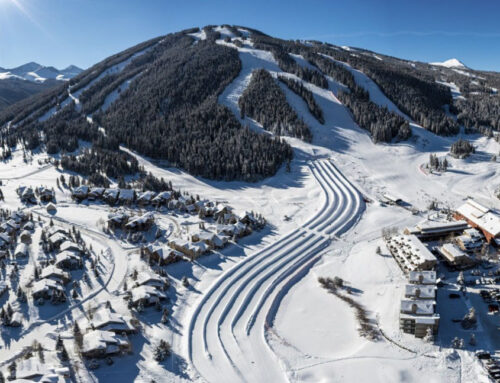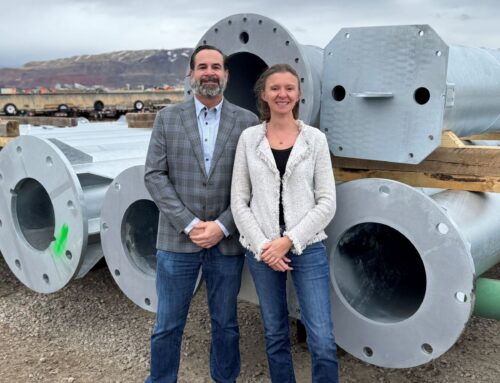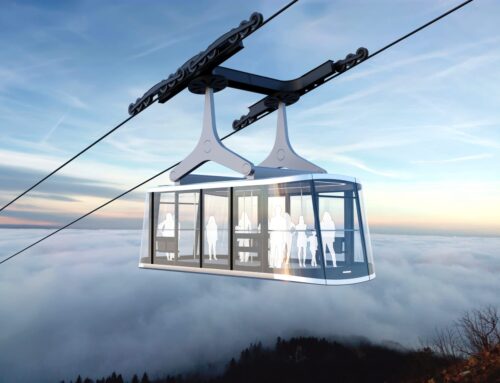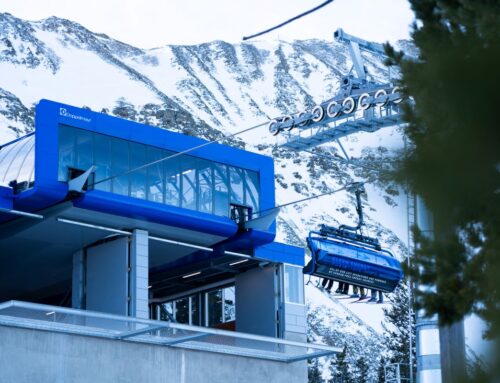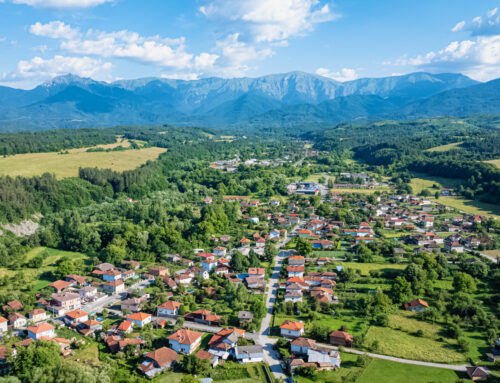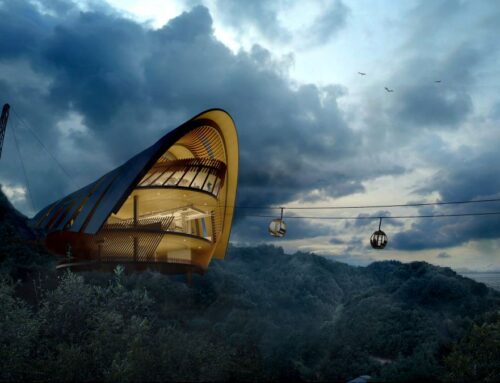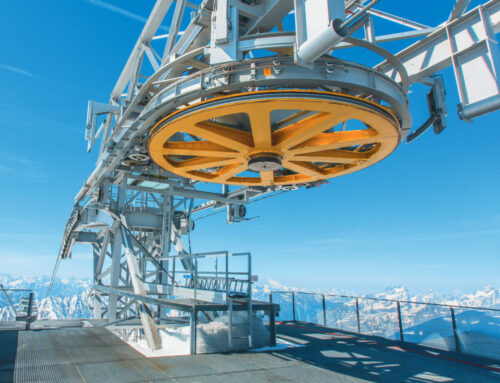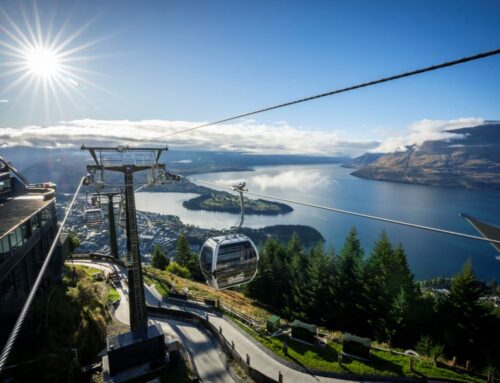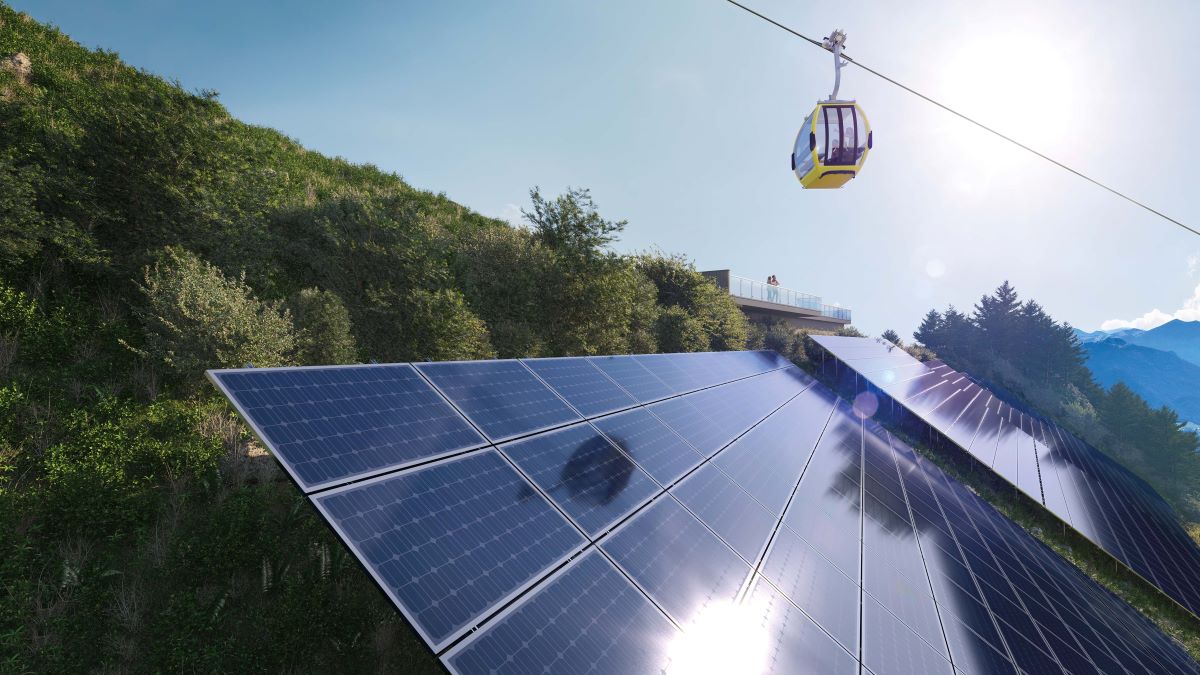
Cableway & Technology, Planning & Construction
The world’s first energy self-sufficient cable car!
With this project, those responsible are setting a pioneering example in terms of sustainability and environmental protection in cable car operations.
In addition to the installations already carried out on the roof of the valley station, this makes it possible to install a photovoltaic system on the southern slope of the mountain station. With the system’s output of 804 kWp, more than 90% of the cable car’s annual energy requirements can be covered by solar power.
“We are delighted to be setting a positive example for our industry and providing proof that cable car operations can be energy self-sufficient and contribute to reducing CO2 emissions,” says Managing Director Mario Stedile-Foradori with conviction.
During the peak season from April to September, the Zwölferhorn cable car is completely energy self-sufficient thanks to the interplay of the PV system and battery storage system. Looking at the year as a whole, the energy generated by the planned photovoltaic system far exceeds the cable car’s own requirements.
PV system on the mountain
- Installed capacity: 803.88 kWp
- Annual energy production: 835,900 kWh
- Bottleneck power: 700 kW
- Modules: 1,848
- 6 tables: with 308 modules each
- Saved CO2 emissions: 190 tonnes
- Equivalent trees planted: 3,500
- Total area: 3,650 m²
- Investment costs: € 2.1 million
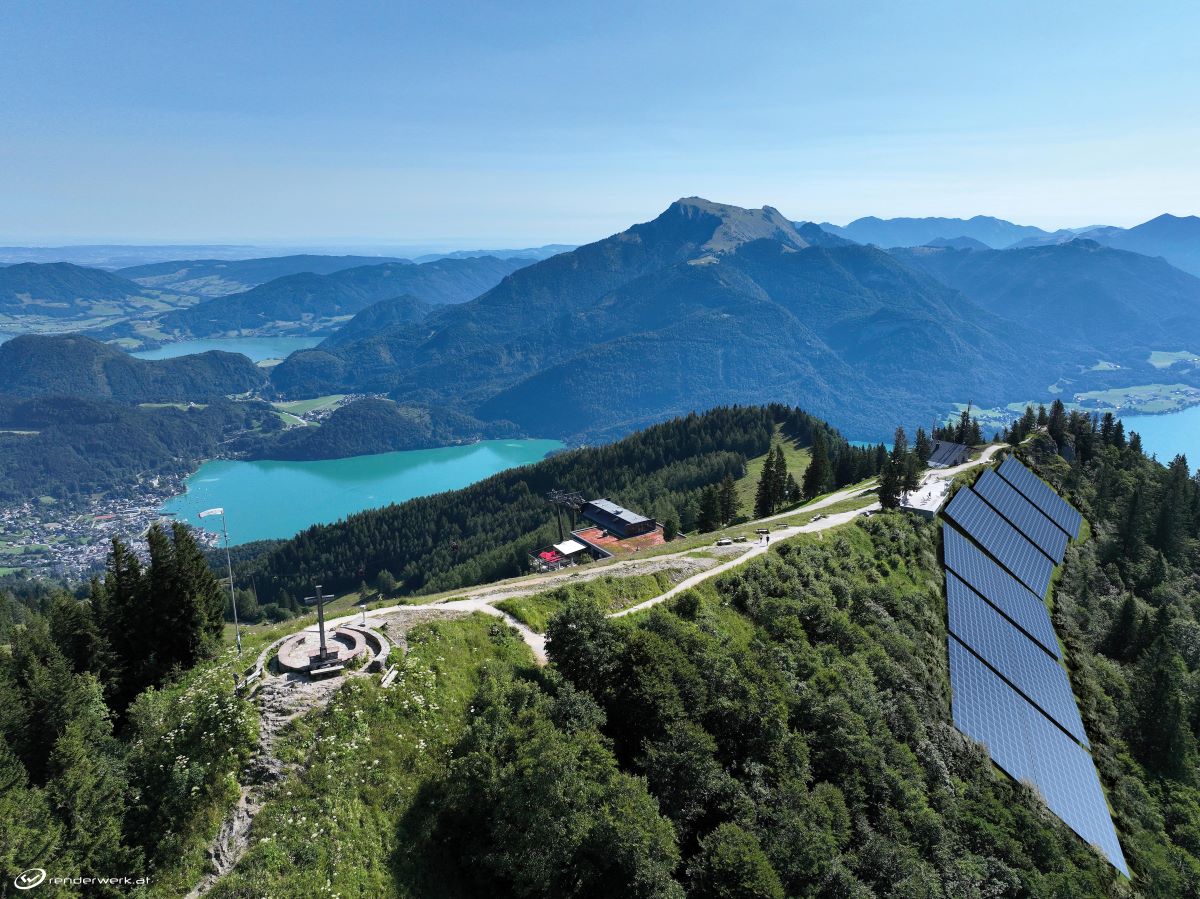
Overproduction for local grids
While the cable car consumed 629,100 kWh of electricity in 2023, the new system produces 930,900 kWh. This means that a third of the electricity is surplus production that can be fed into local public grids.
“This pioneering project in St. Gilgen, which makes the Zwölferhorn cable car largely energy self-sufficient, is unique in the cable car industry and is further proof of how sustainable tourism development can work and have a regional impact. We are proud to have such far-sighted customers as partners and that our D-Line gondola lift to the Zwölferhorn is part of this further development,” says Jürgen Pichler, Head of Marketing at the Doppelmayr Group.
They are pleased that the authorities are also behind the project and quickly approved the PV system (from left):
The two managing directors of the Zwölferhorn cable car – Arthur Moser and Mario Stedile-Foradori – with Otto Kloiber, Mayor of St. Gilgen.

Relief for the grids – less CO2
The battery storage system for the surplus solar power also serves to reduce the load on the electricity grids and has a storage capacity of 550 kWh. Up to 100,000 kWh of electrical energy can thus be stored per year, further optimising the cable car’s electricity consumption.
By switching to renewable energies, the Zwölferhorn cable car will save almost 211 tonnes of CO2 per year, which is roughly equivalent to the cleaning effect of 3,900 newly planted trees per year.
Energy community with the municipality
With the realisation of the photovoltaic system, the Zwölferhorn cable car will be transformed from an energy consumer into an energy power plant. The plan is to form an energy community with the municipality of St. Gilgen using the surplus electricity generated.
Mayor Otto Kloiber sees the relief of the local grids as a great advantage, as well as for St. Gilgen as a progressive tourist destination:
“I am proud to be able to boast such an impressive future-orientated project in our St. Gilgen. The energy self-sufficient cable car in our village is not only a benefit for the environment, but also for our guests, who are offered a sustainable and environmentally friendly experience at the same time.”
Big media rush
The world’s first energy self-sufficient cable car – naturally there is a lot of media interest.

Showcase project for the cable car industry
The professional realisation of this pioneering project is being carried out by SYNECOTEC, a member of the Elevion Group with more than 20 years of experience in the fields of renewable energy and energy efficiency, and the specialist civil engineering company HTB.
They are being supported by the company Klenkhart und Partner, which is assisting the project in all nature conservation matters and attaches particular importance to treating nature with care.
The construction of the photovoltaic system is an important step towards sustainability for St. Gilgen, the Zwölferhorn cable car and the entire cable car industry.
“With our project, we are showing that it is possible to use environmentally friendly technologies in the cable car industry and thus make a contribution to climate protection. Our energy self-sufficient cable car is a showcase project that will hopefully inspire many other companies to take similar measures,” says Zwölferhorn Managing Director Arthur Mose.
